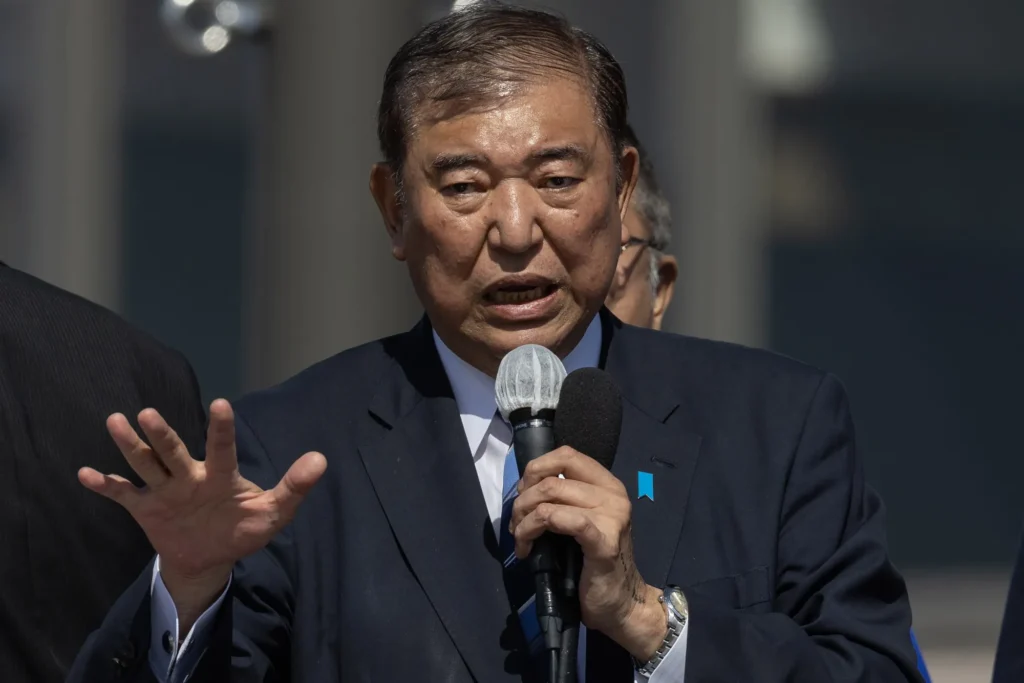Japan’s Prime Minister Shigeru Ishiba has vowed to remain in office, despite early exit polls suggesting a damaging defeat for his ruling coalition in Sunday’s upper house elections. Speaking after polls closed, Ishiba said he “solemnly accepts the harsh result” but emphasized his commitment to ongoing trade negotiations and national stability.
The election took place amid growing public discontent over soaring living costs, political scandals, and fears of new US-imposed tariffs. The ruling Liberal Democratic Party (LDP) and its junior coalition partner Komeito needed 50 seats to maintain control of the 248-member upper chamber. However, public broadcaster NHK projected they could fall short, potentially securing as few as 32 seats.
A loss would further weaken the coalition’s influence, following last year’s loss of their majority in the more powerful lower house. Analysts say the defeat reflects deepening frustration with Ishiba’s leadership and the coalition’s handling of inflation, particularly rising rice prices, and its sluggish response to economic pressures.
Jeffrey Hall, a lecturer at Kanda University, noted that many conservative voters view Ishiba as too moderate compared to his predecessor, Shinzo Abe. “They think he lacks Abe’s nationalist stance and strong views against China,” Hall said. This has benefited far-right parties like Sanseito, which gained traction with anti-immigration rhetoric and conspiracy-laden messaging.
Sanseito, which emerged during the Covid-19 pandemic through YouTube and social media, has drawn support with its “Japanese First” platform. Its rise highlights shifting voter sentiment as Japan grapples with a growing foreign population and rising xenophobia. Concerns over immigration and its perceived effects on housing, jobs, and public services have taken center stage in many campaigns.
In response, Ishiba recently formed a task force targeting crimes linked to foreign nationals an apparent move to recapture conservative support. Despite pressure, Ishiba insists he won’t step down, even as speculation mounts around potential challengers within the LDP.
If the final results confirm the exit polls, it could mark the coalition’s worst upper house performance since 1999 potentially triggering political upheaval at a critical time for Japan’s economy and diplomacy.

